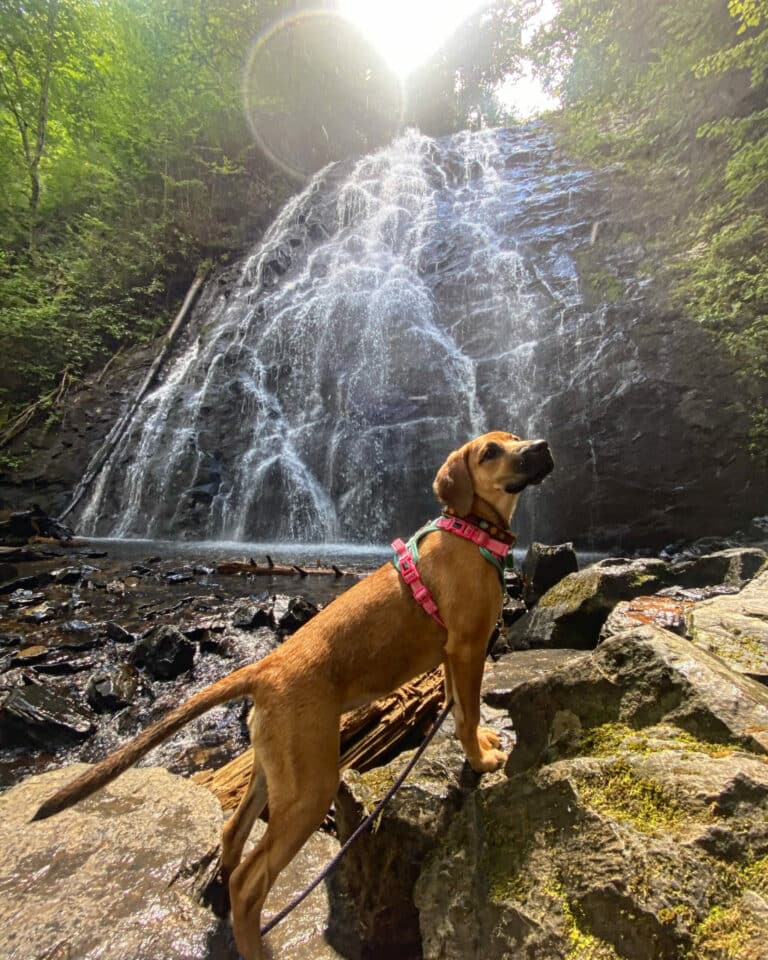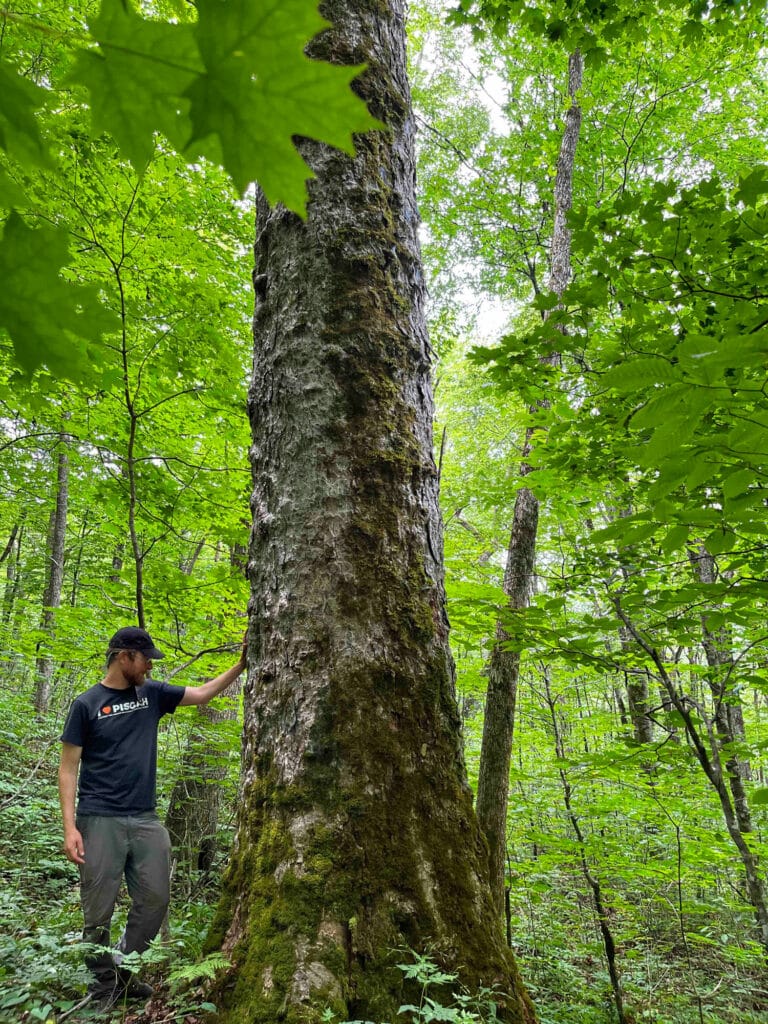YES
A naturally occuring forest fire, such as caused by lightning, is a critical event in the life of a healthy forest. This was demonstrated by the rapid return of a safer and more vibrant ecosystem after the 1988 Yellowstone fire, which burned 45% of the park. Without periodic natural fires, the fires that do occur are more destructive, due to the buildup of underbrush and litter from fallen branches. With the exception of fires threatening homes and property, the fire should be permitted to run its course.
<em>
Karen Keever, Black Mountain, N.C.</em>
Fire is part of nature. Many species of flora and fauna depend on the transitional habitats that fires create, and some species only reproduce after fires. If we supress all fires, we hurt biodiversity. On the other hand, years of fire suppression, along with the recent epidemics of non-native tree killers like gypsy moths and woolly adelgids have led to above normal fuel buildups in many areas. This might cause fires to burn hotter and more destructively than nature intended. In those cases, we might be well advised to consider prescribed burning to reduce the fuel load.
<em>
Michael Gray, Roanoke, Va.</em>
We should let wildfires burn in national forests unless they are endangering human life or valuable property. Stopping wildfires before they have burned out lets this dry tinder build up over time and create a powder keg that’s waiting to explode when the next wildfire arrives.
<em>
Robert Delano, Richmond, Va.</em>
Wildfire is an essential process necessary to a functioning ecosystem. Fire recycles valuable nutrients trapped in slow decaying detritus and catalyzes conditions needed for seed dispersal and forest floor light intensity that are prerequisites for the growth of many plant species. Ultimately fire affects populations of predators and prey as well as soil structure and nutrient cycling.
Over half a century ago American ecologists collectively made the realization that wildfire was a requirement for ecological succession. Amazingly biodiversity richness and complexity will reappear after moderate intensity surface fires.
<em>Luke Kelada, Fairfax, Va. </em>
Wildfires are natural. This gives the earth an opportunity to rejuvenate and replenish. The safety of people should be taken into consideration prior to development. With proper planning and management our national forests can thrive with out unnecessary involvement from us.
<em>
Aaron Sigler, Knoxville, Tenn.</em>
Natural wildfires caused by lightning should be allowed to burn in national forests, but with limitations. Forest Service personnel should manage those fires so that they are confined to a reasonable area, and developed areas near forest land should be protected from damage by fire. Any outdoor enthusiast who opposes natural wildfires might want to read the Wilderness Act and pick up a good book on the need for fire in forest’s long-term health.
<em>
Alan Mallory, Gainesville, Ga. </em>
NO
Devastation to property adjacent to National Forest property can be a huge toll on the environment and local economies. Controlled fires can be used to eliminate underbrush that fuels these wildfires. -Rebecca Evans, Troutville, Va.
Most of the forest land in the Southeast has been purchased from private landowners, so our forests naturally border private land. If a fire starts on our land, we don’t want it to spread onto the neighboring private property. Plus, most of our fires in the Southeast are arson fires. We only get a couple of natural lightning fires a year because our lightning comes with a couple of inches of rain.
<em>Keith Sandifer, Fire Manager, Cherokee National Forest </em>
For thousands of years fire has played an important role in maintaining biodiversity in forests. However, in the early 1900s fire suppression began to take hold, and Smokey Bear’s message became gospel. With fire suppression came the loss of many fire dependent ecosystems and increased fuel loads in our wildlands, which cause hotter, more dangerous wildfires. They also increase potential of flooding, erosion, harmful smoke emissions, property loss, and the spread of invasive exotic communities. With so many anthropogenic changes the landscape, fire must be controlled to protect our forests and people.
<em>Emma Bosley, Asheville, N.C.</em>







